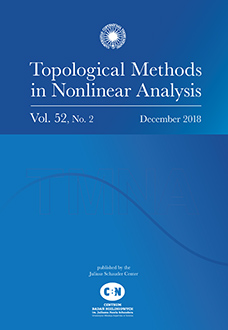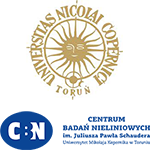Abstract
We consider perturbed Hammerstein integral equations of the form \[ y(t)=\gamma_1(t)H_1(\varphi_1(y))+\gamma_2(t)H_2(\varphi_2(y))+\lambda\int_0^1G(t,s)f(s,y(s)) \,ds \] in the case where $H_1$ and $H_2$ are continuous functions, which can be either linear or nonlinear subject to some restrictions, and $\varphi_1$, $\varphi_2$ are linear functionals. We demonstrate that by using a specially constructed order cone one can equip $\varphi_1$ and $\varphi_2$ with coercivity conditions that are useful in proving existence of multiple positive solutions. In addition, we demonstrate that the methodology can be superior to competing methodologies. We provide an application to the modeling of the deflection of an elastic beam.
Citation
Christopher S. Goodrich. "Coercive functionals and their relationship to multiplicity of solution to nonlocal boundary value problems." Topol. Methods Nonlinear Anal. 54 (2A) 409 - 426, 2019. https://doi.org/10.12775/TMNA.2019.029





